A huge victory in the metrosexual rights movement was made last week when the Japanese Ministry of Health, Labor, and Welfare decided to abolish a guideline which stated that “men should not be able to get haircuts at beauty salons.”
law (Page 5)
On 23 June the Japan Tourism Agency (JTA) announced that it would be conducting a first-of-its-kind study into public bathing facilities such as onsen (hot springs) and sento (bath houses), and their rules regarding tattoos.
Visitors to Japan are often warned that if they want to visit one of Japan’s hundreds of natural springs or meticulously designed baths they can’t be inked up. But how widespread is this rule in Japan really, and is it doing more harm than good in this day and age? These are the things the JTA hopes to learn more about in the weeks to come.
Earlier this week, what is being hailed as Japan’s “trial of the century” by many (in our office) has come to an abrupt end. The Osaka District Court handed down some rough justice in the case of a company president who sued the building he was renting office space from to the tune of 840,000 yen (US$6,800).
The president’s claim that the building’s urinals had caused excessive splash-back of pee were dismissed due to several reasons including the president’s own “pee experiments” being deemed inadmissible by the courts.
Was the president a quack who didn’t know how to urinate correctly? Or was he a victim of greedy cost cutting landlords and toilet moguls? This is their story based on court documents.
Okay, Rocketeers, time for a pop quiz: what is Japanese sake? Turns out the question is actually a little more complicated than it looks on the surface.
A few days ago, we brought you a list of 14 things never to do on a bicycle in Japan in light of new cycling traffic laws that went into effect on June 1. Of course, the new, stricter laws are intended to promote bicycle safety and reduce accidents, but they mean a lot of cyclists in Japan are going to have to give up on some of their old bad habits, like riding while listening to music.
There’s a little speculation that riding with headphones in but no music on, and riding with just one earpiece in (although that sounds to us like a recipe for disaster when the other dangling earbud inevitably gets caught in your spokes) are probably not going to get you jail time or anything, but we like to play it safe here at RocketNews24, at least until happy hour rolls around.
So, when one of our Japanese writers – a noted music lover – was pondering other ways to get his music fix while commuting by bike, he stumbled on what seemed like an easy solution: If the law says you can’t ride with earbuds in your ears, well, just shove those suckers right up your schnoz. It’s so simple it just has to work!
As you probably know, bicycles are an incredibly common method of transportation in Japan. They’ve also been a source of many accidents in the country, and police have taken an increasingly strict approach to dealing with law-breaking cyclists. New rules have recently been implemented to keep the country’s streets from turning into a crazy, Mad Max-esque bicycle dystopia, and one that’s really got people’s attention is a prohibition on earphones/headphones while cycling.
The exact rule and punishment seems to vary from location to location, but wearing earphones in both ears is sure to get you at least a warning, and in some places, Tokyo included, even just one ear is now against the law. But, one of our intrepid RocketNews24 Japan writers thought, what about earphones on your nipples?
Pedestrian crosswalk laws are all over the place no matter where you go. What’s considered jaywalking varies by country, and in the U.S. each state has its own laws for exactly how far the pedestrian needs to have crossed on the crosswalk before you have to stop.
In Japan, typically vehicles are expected to yield to anyone in a crosswalk at all times. That’s why the judge’s decision in a recent landmark case is taking the country by storm right now: a cyclist was killed by a car in a crosswalk, and the motorist was found to be in no way at fault.
On 3 April Guangzhou City in Guangdong Province, China, announced some changes to their organ donation laws. These changes will allow people beyond the immediate family to give permission to harvest a deceased person’s organs.
This is expected to be bad news for Guangzhou’s paranoid population, who must now expand their sphere of people likely to murder them in their sleep well beyond their wife and kids to include co-workers and other members of their community.
Imagine you’re relaxing at home one day when there’s a sudden knock at the door. Before you know it you’re sitting in a police interrogation room with people trying to get a confession out of you for a crime you know nothing about. Soon after, you are sentenced to prison for three years for a crime you never committed, only to be released and regarded by society as a convicted sex offender for the rest of your days.
That nightmare scenario played out for Hiroshi Yanagihara, a man who, well after serving his full prison sentence, was found innocent of all charges. Following that, an understandably upset Yanagihara went after the people who initially arrested and convicted him, demanding compensation and criminal charges.
As a result, on 9 March Toyama District Court awarded Hiroshi Yanagihara 19.7 million yen (US$161,000) – apparently the value of five years of his life.
In today’s globalized economy, it’s perfectly normal to be wearing shoes made in Malaysia, listening to an American pop star on a Korean smartphone while driving a German car fitted with Japanese tires. But how many times have you taken a good look to find out where those new jeans or those headphones you got for Christmas were really made?
Recently Japanese consumers have been discovering that some of their products are from “P.R.C.,” a country they had never heard of, and would like some answers on what appears to be a legal gray zone in product labeling regulations.
Illegally parking bicycles is a persistent problem in Japan, and one creative train station has come up with a new strategy to stop people from leaving bikes where they shouldn’t – by putting cute illustrations done by children on the ground!
On 1 December Yokohama customs and police departments announced the arrest of an allegedly high ranking 49-year-old member of the Sumiyoshikai yakuza group along with six other men in a case of smuggling. They found in his possession 17kg of rock salt, which was actually planted on him by Yokohama customs agents prior to his arrest. All involved are considering it a flawless example of proper law-enforcement.
If you’re confused by this then you might not be familiar with the police tactic known as “oyogasesosa” (swim investigation) or “controlled delivery” as it’s called in English speaking countries.
Japan tends to be a very drug-shy country. Most people you talk to will say that they’ve never gone anywhere near substances like marijuana, and according to a Public Library of Science survey, 98 times out of 100 they’re telling you the truth.
And yet you might be surprised to hear that there is an abundance of cannabis growing wild all over the northern island of Hokkaido. But before you go booking a ticket, you may want to learn why.
Last Friday, on the recommendation of a special committee the Abe cabinet agreed to suggested changes to the Fueiho laws which place severe and unclear regulations on dancing in Japan.
As we reported last week, under Fueiho (Act on Control and Improvement of Amusement and Entertainment Business), businesses such as nightclubs are required to operate under a loosely defined set of parameters. However, most didn’t. This led to a string of raids and closures which crippled the night club scene in much of Japan.
After these new changes pass through the Diet, clubs will be allowed to host dancing after midnight – provided the lighting is bright enough.
On 15 October it was reported that Masatoshi Kanemitsu would have to go back to court after being acquitted by the Osaka District Court. His alleged crime: allowing his customers to dance in the Umeda area club he owned called Noon.
This kind of law prohibiting dancing might sound straight out of some fundamentalist theocracy, but it’s alive and well in Japan. Actually, it’s far worse than a draconian “no dancing whatsoever” law that you know where things stand; nightclubs in Japan seem to allow dancing until someone in authority decides otherwise. There’s no way to know until officers start bursting through your doors.
This sword dangling over the heads of the remaining clubs is called the Act on Control and Improvement of Amusement and Entertainment Business or Fueiho for short. So let’s take a quick look at why this law is crushing dancing in Japan, and I’ll do my best to avoid any Footloose references.
It’s often said that nothing in life is certain except for death and taxes, but for one Osaka resident, that maxim was little more than an old wives’ tale.
One day, the taxman came calling to the tune of 816 million yen (US$7.7M) over years of unreported winning horse race bets. However, in a game where the house always wins, this guy managed to flip the script and knock down the money owed to a relatively modest 67 million yen ($635,000).
Japanese people love to take pictures. Whenever you see them on vacation, no matter if it’s their first time or their thousandth time, they are always taking them. In fact, Japan was one of the first countries to sell mobile phones equipped with a camera back in 2000. Having a camera on you at all times sure does come in handy, as you’ll always be able to capture that special moment wherever you are.
Unfortunately, sometimes that special moment is a peep-shot or a scandalous photo which is certainly a violation of privacy. Japan has taken a very no-nonsense approach to help stop these highly inappropriate photos, and it comes in the form of the Anti-Nuisance Ordinance. So powerful is this law that the latest person to be arrested has caused a bit of commotion. His crime? Taking a picture of a fully-clothed woman sitting beside him on the train.
If you’re like me and enjoy riding a bike while smoking a cigar, kicking a soccer ball around, with a group of friends and your dog while also shooting off a bottle rocket or two when going to the park, you’ll be hard pressed to find one that will accept you.
But you don’t even have to be nearly as obnoxious as I am to be denied entry into some of the thousands of municipal parks across Japan. In recent years, the number of bans on a vast range of activities ordinarily done it parks from riding bikes to walking dogs have been getting banned at an alarming rate.
At least, they would be, but alarms are also probably banned in many parks.
It’s only been a few months since Japan’s consumption tax jumped from five to eight percent, making everything consumers buy instantly at least three percent more expensive. Some sneaky retailers even took advantage of the opportunity by tacking an extra three percent onto their displayed, pre-tax prices.
Now comes a rumor of an entirely new revenue stream the Japanese government might be moving to secure: a tax on cell phones.
Singapore may have a reputation for being an extremely safe and clean country, but there is a good reason for that—very strict laws. The infamous gum ban is just one of the many rules in Singapore designed to keep the city-state tidy and well-behaved. So if you are planning a trip to Singapore (besides perfecting your race-walking skills) you might want to check out some other local laws that are surprisingly stricter compared to other developed countries. Click below to read about 10 laws in Singapore that you should probably follow unless you plan on taking an up close and personal tour of a Singapore jail!
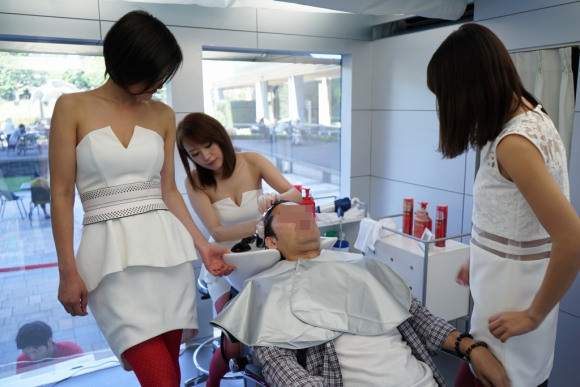
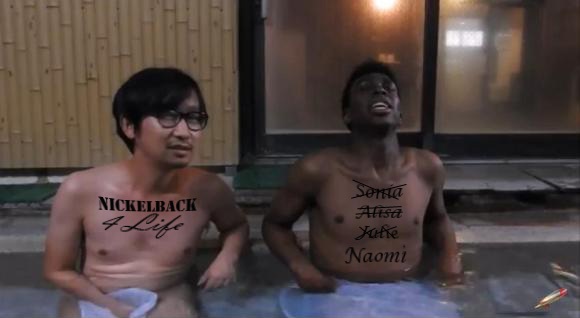

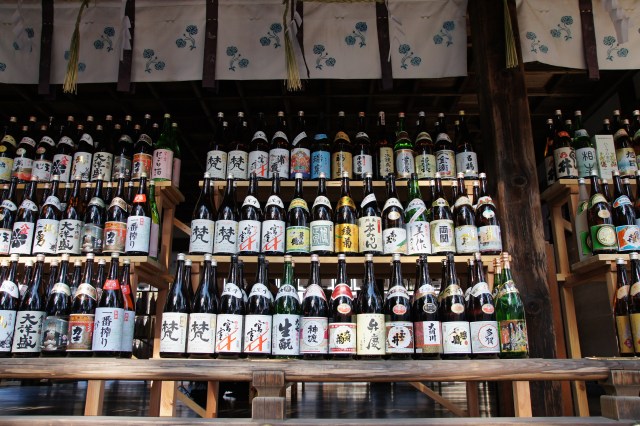
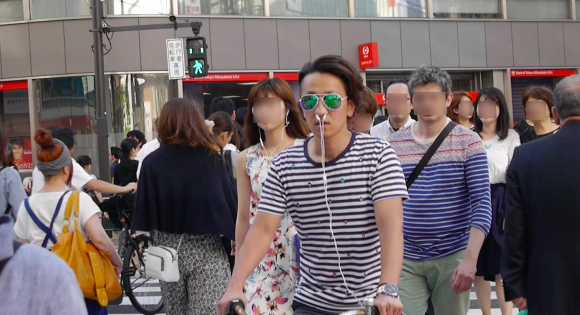
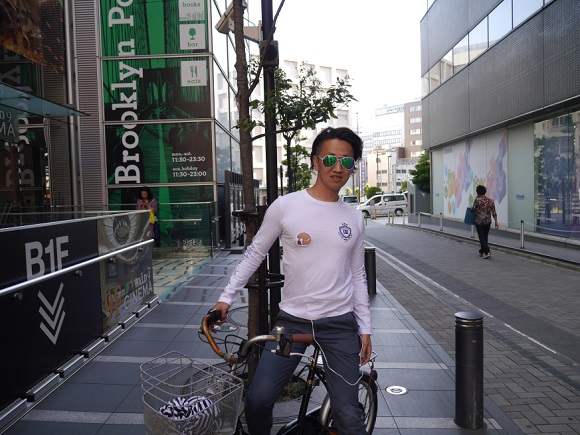
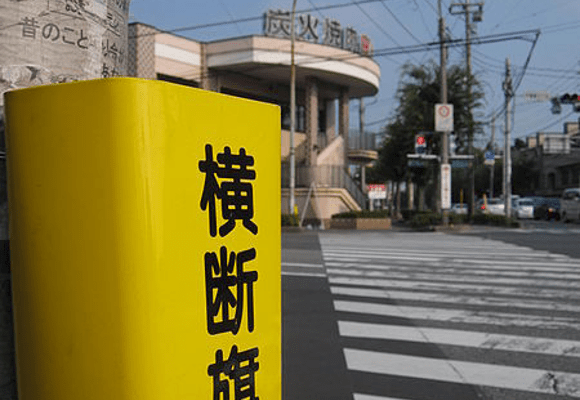
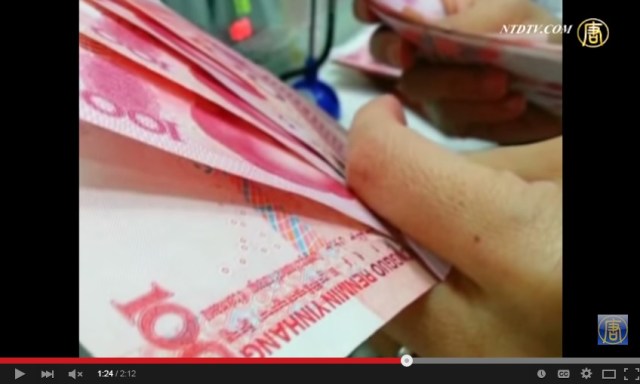
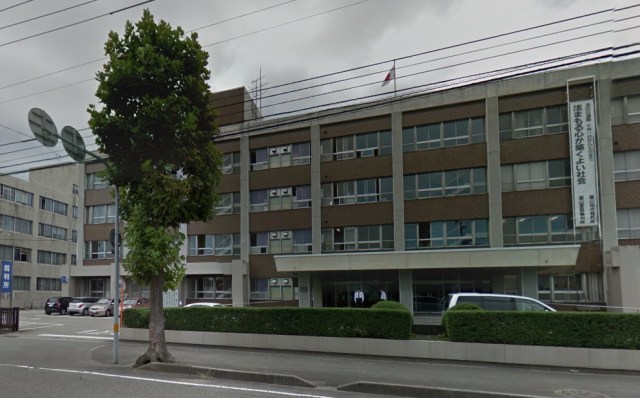

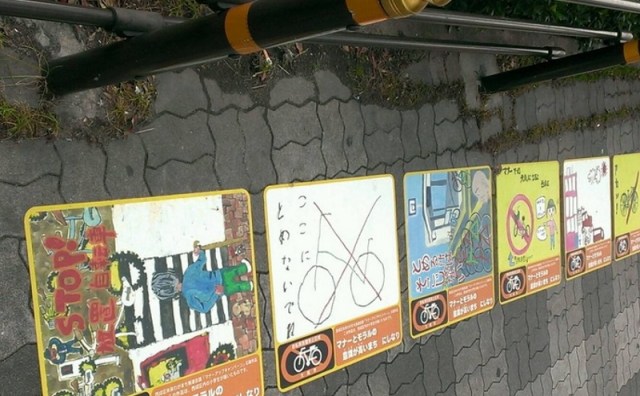


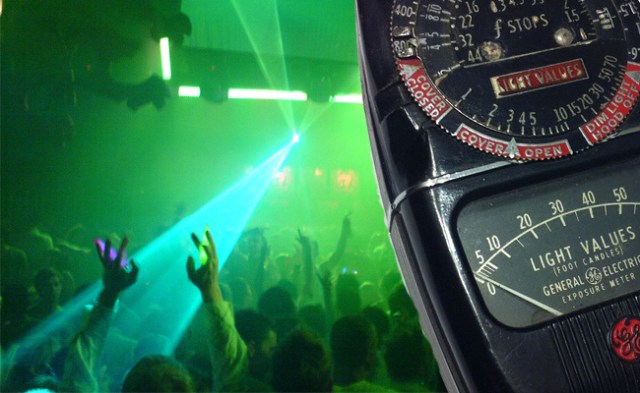

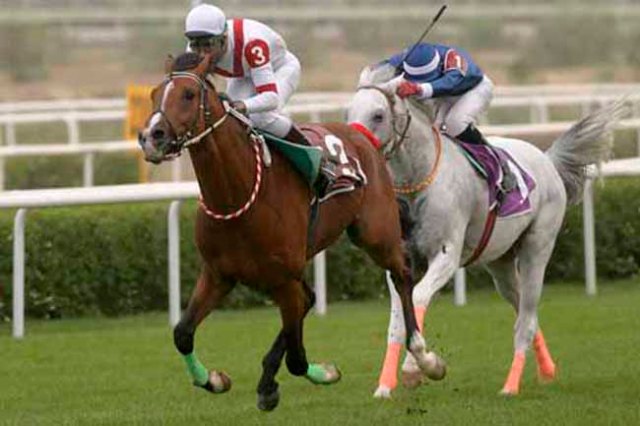
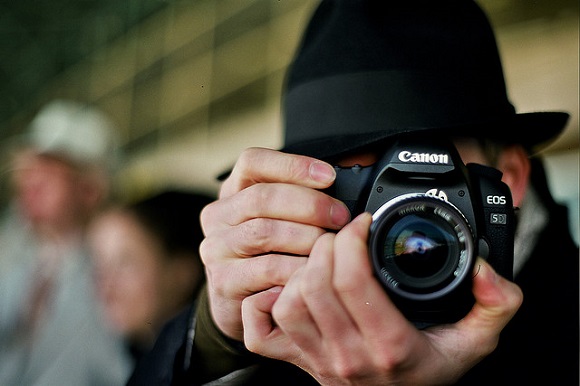
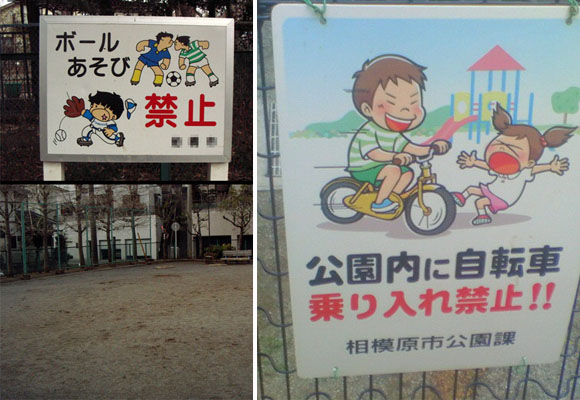
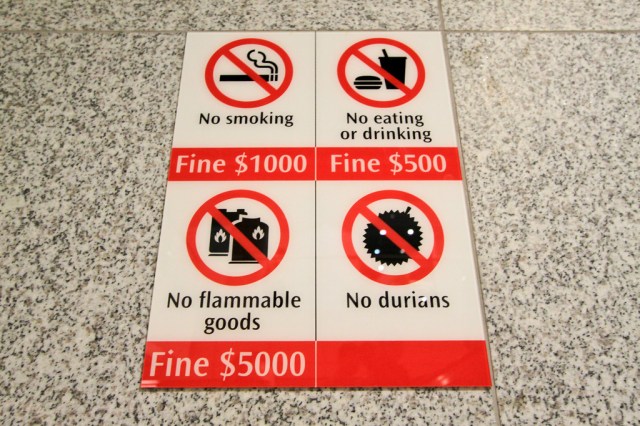
 McDonald’s new Happy Meals offer up cute and practical Sanrio lifestyle goods
McDonald’s new Happy Meals offer up cute and practical Sanrio lifestyle goods All-you-can-drink Starbucks and amazing views part of Tokyo’s new 170 meter-high sky lounge
All-you-can-drink Starbucks and amazing views part of Tokyo’s new 170 meter-high sky lounge McDonald’s Japan releases a pancake pie for new retro kissaten coffeeshop series
McDonald’s Japan releases a pancake pie for new retro kissaten coffeeshop series Super Nintendo World expansion gets delayed for several months at Universal Studios Japan
Super Nintendo World expansion gets delayed for several months at Universal Studios Japan Studio Ghibli glasses cases let anime characters keep an eye on your spectacles
Studio Ghibli glasses cases let anime characters keep an eye on your spectacles More foreign tourists than ever before in history visited Japan last month
More foreign tourists than ever before in history visited Japan last month It’s Japanese commercial time! Watch the best ads from 2017 in one glossy 4K video
It’s Japanese commercial time! Watch the best ads from 2017 in one glossy 4K video Legendary Melon Bread by Tokyo Banana returns after 20-year absence【Taste Test】
Legendary Melon Bread by Tokyo Banana returns after 20-year absence【Taste Test】 Dogs now allowed on Catbus! Ghibli Park vehicles revise service animal policy
Dogs now allowed on Catbus! Ghibli Park vehicles revise service animal policy McDonald’s Japan goes old-school with new Showa-era Kissa Mac sweets lineup【Photos】
McDonald’s Japan goes old-school with new Showa-era Kissa Mac sweets lineup【Photos】 Disney princesses get official manga makeovers for Manga Princess Cafe opening in Tokyo
Disney princesses get official manga makeovers for Manga Princess Cafe opening in Tokyo Starbucks reopens at Shibuya Scramble Crossing with new look and design concept
Starbucks reopens at Shibuya Scramble Crossing with new look and design concept Beautiful new Final Fantasy T-shirt collection on the way from Uniqlo【Photos】
Beautiful new Final Fantasy T-shirt collection on the way from Uniqlo【Photos】 Is the new Shinkansen Train Desk ticket worth it?
Is the new Shinkansen Train Desk ticket worth it? Foreign English teachers in Japan pick their favorite Japanese-language phrases【Survey】
Foreign English teachers in Japan pick their favorite Japanese-language phrases【Survey】 Japanese convenience store packs a whole bento into an onigiri rice ball
Japanese convenience store packs a whole bento into an onigiri rice ball We try out “Chan Ramen”, an underground type of ramen popular in the ramen community
We try out “Chan Ramen”, an underground type of ramen popular in the ramen community Studio Ghibli releases Kiki’s Delivery Service chocolate cake pouches in Japan
Studio Ghibli releases Kiki’s Delivery Service chocolate cake pouches in Japan Japan’s bone-breaking and record-breaking roller coaster is permanently shutting down
Japan’s bone-breaking and record-breaking roller coaster is permanently shutting down New definition of “Japanese whiskey” goes into effect to prevent fakes from fooling overseas buyers
New definition of “Japanese whiskey” goes into effect to prevent fakes from fooling overseas buyers Our Japanese reporter visits Costco in the U.S., finds super American and very Japanese things
Our Japanese reporter visits Costco in the U.S., finds super American and very Japanese things Studio Ghibli unveils Mother’s Day gift set that captures the love in My Neighbour Totoro
Studio Ghibli unveils Mother’s Day gift set that captures the love in My Neighbour Totoro Foreign passenger shoves conductor on one of the last full runs for Japan’s Thunderbird train
Foreign passenger shoves conductor on one of the last full runs for Japan’s Thunderbird train Domino’s Japan now sells…pizza ears?
Domino’s Japan now sells…pizza ears? New Japanese KitKat flavour stars Sanrio characters, including Hello Kitty
New Japanese KitKat flavour stars Sanrio characters, including Hello Kitty Kyoto creates new for-tourist buses to address overtourism with higher prices, faster rides
Kyoto creates new for-tourist buses to address overtourism with higher prices, faster rides Sales of Japan’s most convenient train ticket/shopping payment cards suspended indefinitely
Sales of Japan’s most convenient train ticket/shopping payment cards suspended indefinitely Sold-out Studio Ghibli desktop humidifiers are back so Totoro can help you through the dry season
Sold-out Studio Ghibli desktop humidifiers are back so Totoro can help you through the dry season Japanese government to make first change to romanization spelling rules since the 1950s
Japanese government to make first change to romanization spelling rules since the 1950s Ghibli founders Toshio Suzuki and Hayao Miyazaki contribute to Japanese whisky Totoro label design
Ghibli founders Toshio Suzuki and Hayao Miyazaki contribute to Japanese whisky Totoro label design Doraemon found buried at sea as scene from 1993 anime becomes real life【Photos】
Doraemon found buried at sea as scene from 1993 anime becomes real life【Photos】 Tokyo’s most famous Starbucks is closed
Tokyo’s most famous Starbucks is closed One Piece characters’ nationalities revealed, but fans have mixed opinions
One Piece characters’ nationalities revealed, but fans have mixed opinions We asked a Uniqlo employee what four things we should buy and their suggestions didn’t disappoint
We asked a Uniqlo employee what four things we should buy and their suggestions didn’t disappoint Princesses, fruits, and blacksmiths: Study reveals the 30 most unusual family names in Japan
Princesses, fruits, and blacksmiths: Study reveals the 30 most unusual family names in Japan More foreign tourists than ever before in history visited Japan last month
More foreign tourists than ever before in history visited Japan last month It’s Japanese commercial time! Watch the best ads from 2017 in one glossy 4K video
It’s Japanese commercial time! Watch the best ads from 2017 in one glossy 4K video Legendary Melon Bread by Tokyo Banana returns after 20-year absence【Taste Test】
Legendary Melon Bread by Tokyo Banana returns after 20-year absence【Taste Test】 Dogs now allowed on Catbus! Ghibli Park vehicles revise service animal policy
Dogs now allowed on Catbus! Ghibli Park vehicles revise service animal policy McDonald’s Japan goes old-school with new Showa-era Kissa Mac sweets lineup【Photos】
McDonald’s Japan goes old-school with new Showa-era Kissa Mac sweets lineup【Photos】 Japanese museum celebrates Golden Week by publicly dissecting rare sea creature 【Photos】
Japanese museum celebrates Golden Week by publicly dissecting rare sea creature 【Photos】 Muscly Japanese men fill stock photo site with hilarious poses in unusual settings
Muscly Japanese men fill stock photo site with hilarious poses in unusual settings New sushi restaurant hidden inside Tokyo Station is a secret gem
New sushi restaurant hidden inside Tokyo Station is a secret gem Salaryman gives drunk female coworker a ride home, gets beaten into unconsciousness for it
Salaryman gives drunk female coworker a ride home, gets beaten into unconsciousness for it Catch trendy Pokémon at Harajuku’s Takeshita Street for a limited time
Catch trendy Pokémon at Harajuku’s Takeshita Street for a limited time Studio Ghibli releases new action figures featuring Nausicaä of the Valley of the Wind characters
Studio Ghibli releases new action figures featuring Nausicaä of the Valley of the Wind characters In Kyoto, “Hey, you’ve got a really nice watch” is NOT a compliment, Japanese businessman says
In Kyoto, “Hey, you’ve got a really nice watch” is NOT a compliment, Japanese businessman says Pokémon cakes appear at Ginza Cozy Corner for a very limited time
Pokémon cakes appear at Ginza Cozy Corner for a very limited time